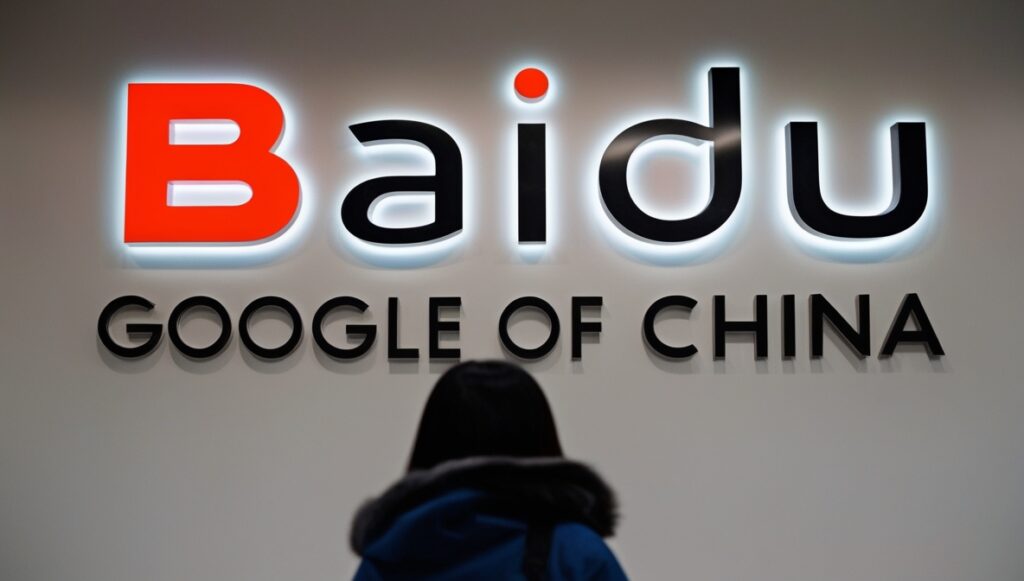
As the largest search engine in China, Baidu dominates the digital landscape with over 70% of the market share. For U.S. businesses looking to tap into the vast Chinese market, optimizing for Baidu is a crucial step. However, one of the main challenges faced by English-speaking businesses is navigating Baidu in the English language. This article will guide you through the process of using Baidu in English, explaining why it’s essential for your business, and how to effectively leverage Baidu SEO to reach your target audience in China.
Understanding Baidu: The Chinese Google

Baidu is often referred to as the “Google of China” due to its overwhelming popularity and dominance in the Chinese search market. However, unlike Google, Baidu is specifically tailored to the needs and preferences of Chinese users. This means that the algorithms, content preferences, and SEO techniques differ significantly from those of Google.
For businesses aiming to enter the Chinese market, understanding and mastering Baidu is non-negotiable. The search engine is a gateway to millions of potential customers, but the language barrier and cultural differences can pose challenges, especially for English-speaking businesses.
The Challenge of Using Baidu in English Language
One of the primary hurdles U.S. businesses face when attempting to use baidu in english language barrier. Baidu’s interface, services, and support are primarily in Chinese, which can be daunting for non-Chinese speakers. While there are ways to translate Baidu into English, the accuracy of these translations can vary, making it difficult to fully understand the platform’s nuances.
Additionally, the search results and algorithms on Baidu are optimized for Chinese-language content, meaning that even if you manage to use Baidu in English, the results may not be as relevant or accurate as they would be for a Chinese user.
Why U.S. Businesses Need to Focus on Baidu SEO
For U.S. companies aiming to reach Chinese consumers, focusing on Baidu SEO is essential. Here’s why:
- Market Dominance: With over 70% market share, Baidu is the go-to search engine for most Chinese internet users. Ignoring Baidu means missing out on a vast audience.
- Local Relevance: Baidu’s algorithms prioritize local content, meaning that businesses with a strong Baidu presence are more likely to be discovered by Chinese consumers.
- Mobile Integration: Baidu is deeply integrated with mobile services in China, including Baidu Maps, Baidu Baike (a Wikipedia-like platform), and Baidu Tieba (a popular forum). This integration provides multiple touchpoints to engage with potential customers.
- Cultural Adaptation: By focusing on Baidu, businesses can tailor their content to meet the cultural and linguistic needs of the Chinese market, increasing the likelihood of conversion.
How to Use Baidu in English: A Step-by-Step Guide
While Baidu is predominantly in Chinese, there are a few methods to use the platform in English:
- Google Chrome Translation: Using Google Chrome’s built-in translation feature, you can translate Baidu’s pages into English. While this method is not perfect, it provides a basic understanding of the content.
- Third-Party Tools: Tools like Baidu Translate can help with translating specific queries or content into English. However, be cautious as the translations may not always capture the full meaning or context.
- Hire a Local Partner: For businesses serious about Baidu SEO, hiring a local Chinese partner or agency is the most effective approach. They can navigate the platform, optimize your content, and ensure that your SEO strategy aligns with Baidu’s algorithms and Chinese consumer preferences.
Optimizing Your Website for Baidu SEO
Once you’ve familiarized yourself with using Baidu in English, the next step is to optimize your website for Baidu SEO. Here’s how:
- Content Localization: Create content that is not only translated into Chinese but also culturally relevant. This includes using Chinese idioms, references, and understanding local trends.
- Chinese Hosting and Domain: Baidu prefers websites that are hosted on Chinese servers and have a .cn domain. This signals to Baidu that your website is local and relevant to Chinese users.
- Meta Tags and Keywords: Just like Google, Baidu uses meta tags and keywords to rank websites. However, Baidu’s algorithms prioritize keywords in the title, meta description, and content more heavily. Ensure that these elements are in Chinese and relevant to your target audience.
- Mobile Optimization: With a large portion of Chinese users accessing the internet via mobile devices, ensuring your website is mobile-friendly is crucial. Baidu’s mobile search algorithms favor sites that load quickly and provide a seamless user experience on mobile devices.
- Baidu Webmaster Tools: Similar to Google’s Search Console, Baidu offers a suite of tools for webmasters to monitor and optimize their site’s performance. Using Baidu Webmaster Tools, you can submit your sitemap, monitor backlinks, and track your website’s ranking on Baidu.
Leveraging Baidu Advertising
In addition to SEO, Baidu offers a range of advertising options that can help U.S. businesses increase their visibility in the Chinese market:
- Baidu Tuiguang: Baidu’s paid advertising platform allows businesses to display ads in search results, similar to Google AdWords. These ads can be targeted based on keywords, location, and demographics.
- Display Advertising: Baidu offers display advertising options that allow businesses to place banner ads on popular websites within its network. This can be a great way to increase brand awareness and reach a wider audience.
- Baidu Brand Zone: For businesses looking to establish a strong brand presence, Baidu Brand Zone allows you to create a customized brand space that appears at the top of search results. This is particularly useful for well-known brands looking to maintain visibility and credibility in the Chinese market.
Common Challenges and How to Overcome Them
While Baidu offers immense opportunities, it also comes with its challenges:
- Language Barrier: The most obvious challenge is the language barrier. Even with translation tools, understanding and navigating Baidu can be difficult. Hiring a bilingual SEO expert or working with a local agency can mitigate this issue.
- Censorship and Regulations: China’s strict internet regulations mean that some content that is acceptable on Google may be censored on Baidu. It’s important to understand these regulations and ensure that your content complies with Chinese laws.
- Algorithm Differences: Baidu’s algorithms differ significantly from Google’s, particularly in how they prioritize content. Working with an SEO expert who understands Baidu’s unique ranking factors is essential for success.
Conclusion: Embracing the Opportunities of Baidu in English

While using Baidu in English presents challenges, the potential rewards for U.S. businesses are immense. By investing in Baidu SEO and understanding how to navigate the platform, businesses can tap into one of the world’s largest and most lucrative markets.
At Dust Digital Marketing Ltd, we specialize in helping businesses optimize their digital presence on Baidu and other Chinese platforms. Our team of experts can guide you through the complexities of Baidu SEO, ensuring that your business reaches its full potential in the Chinese market. Contact us today to learn more about our Baidu SEO services and how we can help your business succeed.

